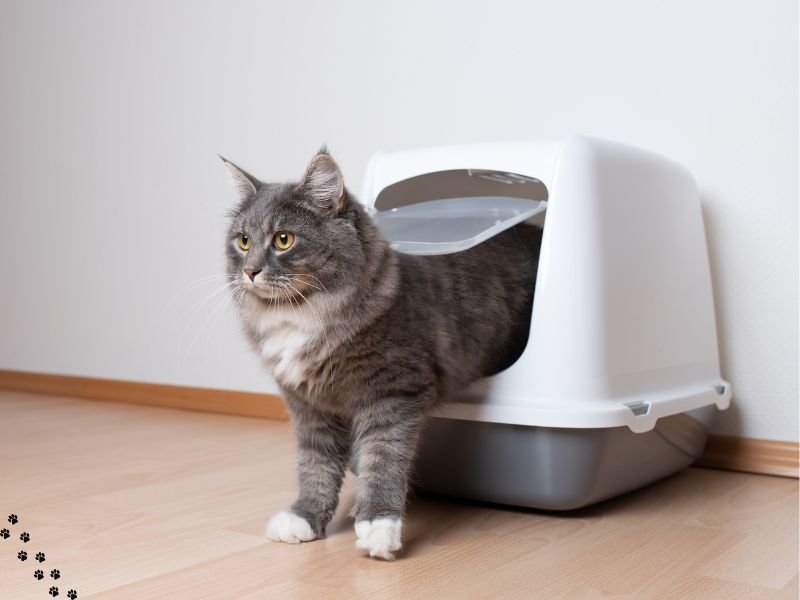Lemons and dogs may seem like an odd combination, but the thought of a refreshing glass of lemonade on a hot summer day can make anyone crave a sip.
As responsible pet owners, we often wonder if our furry friends can partake in this zesty beverage and cool off alongside us. So, can dogs drink lemonade?
In this informative article, we will unravel the truth behind this tantalizing query, exploring the potential risks, benefits, and considerations to ensure your canine companion stays healthy and hydrated.
Table of Contents
- The Benefits and Risks of Feeding Lemonade to Your Dog
- Understanding the Nutritional Value of Lemonade for Dogs
- Steps to Safely Introduce Lemonade into Your Dog’s Diet: Dos and Don’ts
- Signs of Lemonade Intolerance or Allergies in Dogs: How to Recognize and Address Them
- Alternative Hydration Options for Dogs: Healthy and Refreshing Beverages to Try
- Consult with a Vet: Exploring Professional Opinions on Dogs and Lemonade Consumption
- People Also Ask
- Conclusion
The Benefits and Risks of Feeding Lemonade to Your Dog
In order to ensure the well-being of your furry friend, it is important to consider the benefits and risks associated with feeding lemonade to your dog.
While lemonade may be a refreshing and tasty beverage for humans, it may not necessarily have the same effect on our canine companions.
Understanding the potential advantages, as well as the potential risks, can help you make an informed decision regarding whether or not lemonade should be a part of your dog’s diet.
Potential Benefits
Lemonade is often thought of as a source of hydration, and it can provide some benefits for dogs in moderation.
The water content of lemonade can help keep your dog hydrated, especially during hot summer months or after vigorous physical activity.
Additionally, lemons contain vitamin C, which is an essential nutrient for dogs, supporting their immune system and overall health.
However, it is important to note that dogs produce their own vitamin C, and excessive amounts can lead to digestive upset or even diarrhea.
Therefore, moderation is key when considering the potential benefits of lemonade for your dog.
Potential Risks
While small amounts of lemonade may not be harmful to most dogs, there are some risks to be aware of. One primary concern is the high sugar content in most commercially available lemonade.
Dogs have a limited ability to process and break down sugars, and excessive sugar intake can contribute to obesity, dental issues, and even diabetes in dogs.
Additionally, some dogs may have an adverse reaction to the citric acid present in lemonade, leading to digestive distress such as upset stomach or vomiting. It’s important to keep an eye out for any signs of discomfort or adverse reactions if you decide to introduce lemonade into your dog’s diet.
It is crucial to consult with your veterinarian before introducing lemonade or any new food or beverage into your dog’s diet.
They can provide personalized guidance based on your dog’s specific health needs and dietary requirements. Remember, every dog is unique and may react differently to certain foods and drinks.
By being well-informed about the benefits and risks, you can make a responsible decision to ensure the overall well-being of your beloved canine companion.
Understanding the Nutritional Value of Lemonade for Dogs
In this section, we will delve into the nutritional aspects of lemonade for dogs and provide you with a comprehensive guide on what you need to know.
While lemonade may seem enticing as a refreshing beverage, it’s important to understand the impact it can have on your furry friend’s health.
The Citrus Factor
Lemonade derives its primary flavor from lemons, which are citrus fruits.
Citrus fruits contain high levels of citric acid, which can be both beneficial and detrimental for dogs.
While small amounts of citric acid can aid digestion and provide a natural source of Vitamin C, excessive consumption can result in stomach upset and lead to issues like acid reflux or gastrointestinal discomfort.
Sugar Content
Another important consideration when it comes to lemonade is its sugar content.
Traditional lemonade recipes often call for significant amounts of sugar, which can be harmful to dogs.
Consuming excessive sugar can lead to weight gain, dental problems, and even the development of diabetes in some cases.
It’s crucial to limit your dog’s intake of sugar to maintain their overall health and well-being.
Hydration Benefits
On the other hand, lemonade can be a source of hydration for dogs, especially during hot summer months. The water content in lemonade can help quench their thirst and prevent dehydration.
However, it is essential to remember that plain water should always be the primary source of hydration for your furry companion, with lemonade being an occasional treat rather than a regular beverage.
It is necessary to approach the inclusion of lemonade in your dog’s diet with caution, taking into account their specific health needs and any underlying conditions they may have.
Always consult with your veterinarian before introducing anything new to your dog’s diet, including lemonade.
They can provide tailored advice and help assess whether lemonade is a suitable and safe choice given your dog’s individual circumstances.
By understanding the nutritional value of lemonade and making informed decisions, you can ensure the well-being and happiness of your beloved canine companion.
Steps to Safely Introduce Lemonade into Your Dog’s Diet: Dos and Don’ts
In order to safely introduce lemonade into your dog’s diet, it is important to follow a few guidelines to ensure their health and well-being.
While lemonade can be a refreshing treat for your furry friend, it should be given in moderation and with caution.
Do’s:
- Choose a Safe and Natural Lemonade: When giving lemonade to your dog, it is crucial to make sure it is homemade or from a reputable brand that uses natural ingredients and does not contain any artificial sweeteners, such as xylitol, which can be toxic to dogs.
- Start with Small Amounts: Begin by offering your dog a small amount of diluted lemonade and observe how they react. This will help you evaluate their tolerance and prevent any potential negative reactions.
- Monitor Your Dog’s Health: Keep an eye on your dog after they consume lemonade. Look out for any signs of digestive upset, such as vomiting or diarrhea. Additionally, assess their overall well-being to ensure there are no adverse effects.
Don’ts:
- Don’t Use Artificial Sweeteners: Artificial sweeteners, like xylitol, can be harmful or even fatal to dogs. Always check the label and avoid lemonades that contain these substances.
- Don’t Give Too Much: Lemonade should be considered an occasional treat rather than a daily beverage for your dog. Overconsumption may lead to stomach upset or other health issues.
- Don’t Force It: If your dog shows reluctance or aversion to lemonade, do not insist on giving it to them. Every dog has different tastes and preferences, so respect their choices.
By following these dos and don’ts, you can safely introduce lemonade into your dog’s diet as an occasional treat.
Remember that moderation is key, and it’s always wise to consult with your veterinarian before making any significant changes to your dog’s diet.
Signs of Lemonade Intolerance or Allergies in Dogs: How to Recognize and Address Them
In this section, we will discuss the signs of lemonade intolerance or allergies in dogs and provide guidance on how to recognize and address them effectively.
While lemonade may be a refreshing treat for humans, it is important to understand that dogs have different digestive systems and may react differently to certain foods and beverages, including lemonade.
Recognizing the Signs
Dogs may exhibit various signs of intolerance or allergy to lemonade. These can include gastrointestinal symptoms such as vomiting, diarrhea, or abdominal discomfort.
Additionally, dogs with lemonade intolerance may experience skin irritations, itchiness, or redness. It is important to note that these symptoms may vary depending on the individual dog and the severity of the reaction.
Addressing the Issue
If you suspect that your dog is having an adverse reaction to lemonade, it is crucial to take swift action to alleviate their discomfort.
The first step is to stop giving them lemonade immediately and ensure they have access to fresh water.
It is also advisable to consult with a veterinarian to determine the underlying cause of the reaction and seek appropriate treatment.
Your vet may recommend dietary changes, medication, or other interventions based on the specific needs of your dog.
Preventing Future Reactions
To prevent any future lemonade-related intolerance or allergy incidents, it is crucial to be vigilant about what you feed your dog. Avoid giving them lemonade or any other citrus-based beverages.
It is also important to read labels carefully when purchasing dog treats or food, as lemonade or lemon-flavored ingredients may be present in some products.
By following these precautions, you can help ensure the well-being and health of your beloved canine companion.
Please remember that the information provided here is for informational purposes only and should not replace professional veterinary advice.
If you have any concerns or questions about your dog’s health or dietary restrictions, it is always best to consult with a qualified veterinarian for personalized guidance.
Alternative Hydration Options for Dogs: Healthy and Refreshing Beverages to Try
While it’s important to understand the potential benefits and risks of giving lemonade to your dog, it’s also essential to explore alternative hydration options that can provide them with the necessary refreshment.
Here are some healthy and safe beverages that you can try offering to your furry friend:
Natural Coconut Water
Coconut water is not only delicious but also a hydrating option for your dog.
It contains electrolytes, such as potassium and magnesium, that can help replenish those lost during hot summer days or vigorous activities.
Ensure that you choose unsweetened and plain coconut water without any added flavors or preservatives.
Fruit-Infused Water
Give your dog a refreshing treat by infusing their water with natural flavors.
Slice up some dog-friendly fruits like apples, berries, or watermelon, and add them to a large bowl of water.
Allow the fruits to infuse for a few hours in the refrigerator, and then offer the fruit-infused water to your pup.
Homemade Broth
Another excellent option for hydration is offering your dog homemade broth. This can be made by boiling lean meat (such as chicken or beef) in water and then straining out the solids.
The resulting liquid can be served at room temperature or slightly chilled.
Just make sure that the broth is free from added salts and seasonings, as these can be harmful to dogs.
Remember, while these alternative hydration options can be a safe and healthy way to keep your dog hydrated, always monitor their intake and observe how they react.
Every dog is unique, and it is essential to ensure that any new beverage is well-tolerated by your furry companion.
If you have any concerns or doubts, consult with your veterinarian before making any significant changes to your dog’s diet.
Consult with a Vet: Exploring Professional Opinions on Dogs and Lemonade Consumption
In order to provide the most accurate and informed advice for your specific dog, it is always best to consult with a veterinarian regarding the consumption of lemonade.
Vets are knowledgeable experts who can assess your dog’s individual health needs and provide personalized recommendations.
While this article aims to provide general information, a vet can offer professional guidance tailored to your dog’s unique circumstances.
When discussing lemonade consumption with your vet, it is important to provide them with comprehensive information about your dog’s overall health, including any pre-existing conditions, medications, or dietary restrictions. This will enable the vet to make an informed assessment and give appropriate recommendations.
During a consultation, a vet may explain that while some dogs may tolerate lemonade well, others may experience adverse reactions.
They may emphasize the need to monitor your dog’s behavior and health closely after introducing lemonade into their diet.
Additionally, a vet may suggest conducting a trial phase to see how your dog reacts to small amounts of lemonade before gradually increasing the serving size if deemed appropriate.
Vets may also discuss potential risks associated with lemonade consumption, such as the high sugar content that can contribute to obesity, diabetes, or dental issues in dogs.
They may advise seeking low-sugar or sugar-free alternatives to lemonade or exploring other hydrating options that are both healthy and appealing to dogs.
Ultimately, by consulting with a vet, you can make an informed decision about whether or not lemonade is suitable for your dog.
Their professional expertise will ensure that you understand the potential benefits and risks, as well as any potential alternatives that may be more suitable for your furry friend’s health and well-being.
Remember, your vet is your best resource when it comes to making dietary decisions for your dog.
People Also Ask
1. Is lemonade safe for dogs?
Yes, dogs can drink lemonade in moderation. However, it is essential to make sure the lemonade is homemade and specifically made for dogs, as store-bought lemonade may contain harmful additives like sugar or artificial sweeteners.
2. Can dogs have lemon juice?
While a small amount of lemon juice is safe for dogs, diluting it with water and offering it in moderation is important. Lemon juice can irritate their stomach if given in large quantities and may not be suitable for dogs with sensitive stomachs.
3. Are lemons toxic to dogs?
Lemons and lemon peels are not toxic to dogs. However, the citric acid in lemons can cause stomach upset and diarrhea if consumed in large amounts. It is always best to introduce any new food or drink gradually to monitor your dog’s individual reaction.
4. Are there any benefits of giving dogs lemonade?
In small amounts, homemade lemonade made with natural ingredients can provide some health benefits to dogs. It may help improve digestion, provide hydration, and boost their immune system due to the presence of Vitamin C. However, it is crucial to consult with a veterinarian before introducing lemonade into your dog’s diet.
5. What are the alternatives to lemonade for dogs?
If you are looking for alternative drinks for your dog, fresh water is always the best choice to keep them hydrated. Additionally, you can offer them diluted, unsweetened coconut water or herbal teas (without caffeine or additives) as a refreshing and safe option.
Conclusion
While dogs can drink lemonade in moderation, it is important to consider their individual needs and consult with a veterinarian beforehand.
Homemade lemonade made with natural ingredients can offer some benefits, such as improved digestion and hydration. However, store-bought lemonade must be avoided due to potentially harmful additives. Always monitor their reaction and ensure that any new drink is introduced gradually and in appropriate quantities.











